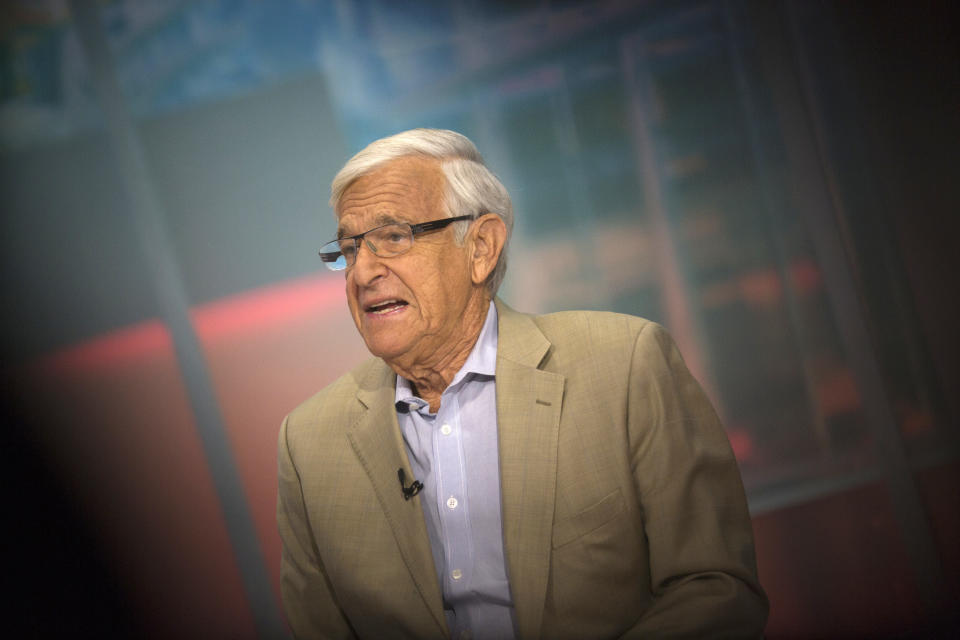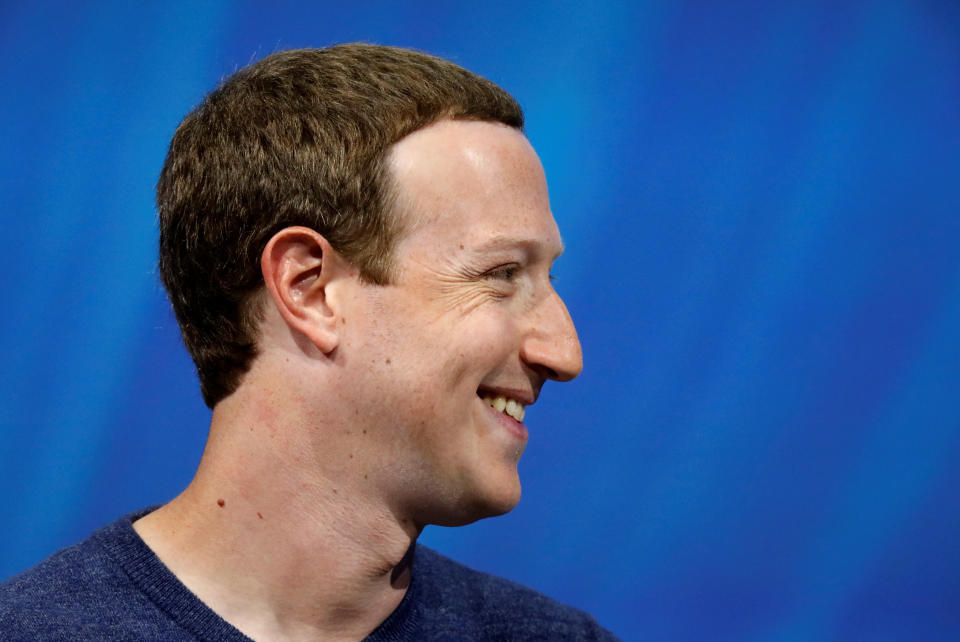Prominent VC Alan Patricof: Facebook, Amazon, and Google are too powerful
In a new interview with Yahoo Finance, venture capital pioneer Alan Patricof contends big tech companies such as Facebook (FB), Google (GOOG, GOOGL), and Amazon (AMZN) have become too powerful for their own good.
“Some people might even call them quasi-monopolies,” Patricof said during an interview with Yahoo Finance Editor-in-Chief Andy Serwer that aired Thursday afternoon. “You know, our definition of what's a monopoly and what's anti-competitive maybe has to change from what it was in the early 1900s, when we passed the original acts to protect businesses against competition against monopolies.”
As one of private equity’s earliest venture capitalists in the U.S., Patricof has a comprehensive knowledge of technology that spans hundreds of investments over several decades, including Apple (AAPL), AOL, Venmo, and the online men’s styling service Trunk Club, which Nordstrom (JWN) acquired in 2014.

Patricof, founder and managing director of Greycroft, is not alone in wondering whether big tech companies are approaching monopoly status by cornering their respective markets and moving to squash competition. Sen. Elizabeth Warren, one of the Democratic presidential candidates for 2020, has said if elected, her administration would move to break up Amazon, Facebook, and Google, arguing in a Medium post this March that the companies have been “throwing around their political power to shape the rules in their favor and throwing around their economic power to snuff out or buy up even potential competitors.”
Walking a fine line
Patricof walks a fine line weighing in further on Google, Facebook and Amazon’s growth and maneuvering, suggesting these big tech companies didn’t intend to become monopolies.
“I am concerned about the impact of the element of Google, Facebook, Amazon and the potential monopolistic positions they have taken — not because they set out to do it,” Patricof added. “I mean, in the 1900s, the robber barons started out to be monopolies to control things. I don't think that's the nature. They just have grown because their business has grown, just like a lot of private equity firms and venture firms have grown, because there's so much money out there.”
But over the last 12 months, government officials have scrutinized these tech companies and their size. Republican senator Lindsey Graham from South Carolina even went so far as to ask CEO Mark Zuckerberg during a Senate committee hearing last April whether Facebook was, indeed, a monopoly. (Long story short: Zuckerberg denied Facebook is one, but had difficulty identifying the social network’s biggest competitor.)

Google, whose core business is also advertising, controlled nearly 37% of all digital ad sales in the U.S. in 2018, far ahead of Facebook, its nearest competitor, according to eMarketer. This March, the European Union ordered Google to pay $1.7 billion for abusing its dominance and imposing unfair exclusivity rules with some websites. (Google dropped those particular contracts with sites in 2016 once the EU stepped up its investigation into the matter.)
With Amazon, there is no shortage of brick and mortar and online retailers that have struggled (or shuttered) due at least in part to the Seattle tech giant’s dominance. According to forecasts from FTI Consulting last fall, Amazon’s U.S. e-commerce market share was 39.7% in 2018 and is expected to reach 50% by 2023. Earlier this month, Amazon decided to stop telling third-party sellers on its platform they could not offer lower prices on competing websites, according to a CNBC report — a move that followed a letter from Richard Blumenthal, a Democratic senator from Connecticut, who argued the practice would “stifle market competition and artificially inflate prices.”
More runway
Regardless, there’s still more runway for Amazon, which has made an aggressive push in more recent years into physical retail, opening book stores and acquiring Whole Foods in 2017. To that end, the Seattle tech giant accounted for just 5% of the overall U.S. digital and offline retail market last year, according to eMarketer. Amazon also faces increasing competition from brick and mortar retailers like Walmart (WMT) and Target (TGT), which have successfully expanded their online and in-store pick-up options.
As these big tech companies have grown, so have their ambitions, obviously, with aggressive expansion into new areas, including hardware, original content, and physical retail.
“I think, though, these companies are feeding on themselves and growing and getting bigger and bigger, and they've got to find places to deploy their profits, so they go into more businesses,” explained Patricof. “They have more data available, and I think it's a concern that others have expressed besides me.”
Certainly it’s an area that will continue to be scrutinized as lawmakers move to draft and strengthen rules protecting user privacy in the years to come.
More from JP:
